
Gaza Humanitarian Foundation begins aid deliveries amid chaos and bloodshed
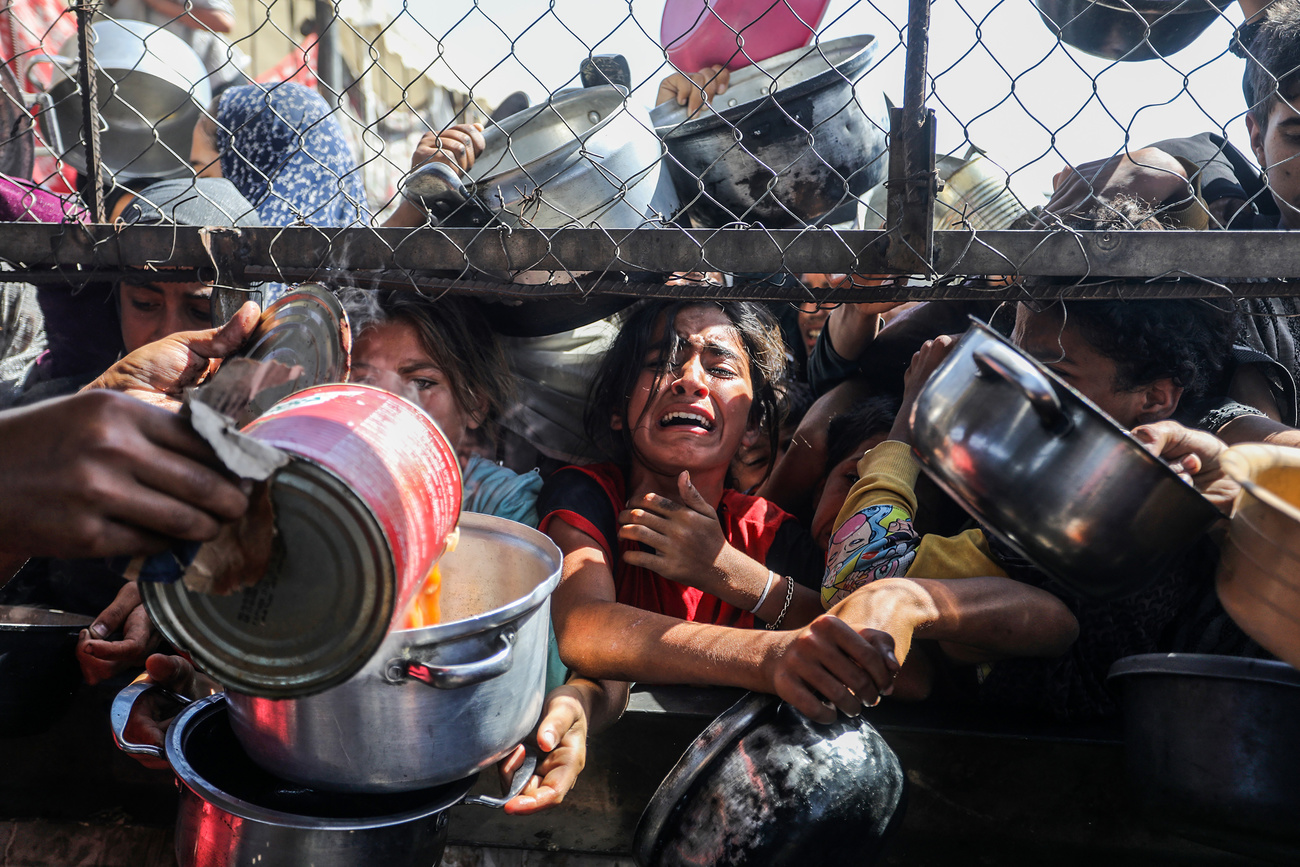
The Gaza Humanitarian Foundation (GHF), supported by Israel and the US, was created as a replacement to UN-led humanitarian aid in the Gaza Strip. Barely one week after its official launch, it’s already laden with major controversies.
Last week, chaos and gunfire erupted during the launch of the Gaza Humanitarian Foundation’s aid initiative when thousands of starved and panicked Palestinians rushed a food distribution site after two months of an Israeli blockade that prohibited food and other essential items from entering the battered enclave. The Israeli military said it fired warning shots to disperse the crowd.
Since the foundation’s opening day debacle on May 27, the carnage has continued with at least two additional mass casualty events near GHF distribution sites in Gaza’s south. On June 1, more than 30 Palestinians were killed and over 100 were injured by “warning shots” fired by Israeli forces, according to Palestinian authorities and eye witnesses. The GHF called the reports “completely false and fabricated.” In a statement, the spokesperson for the UN Secretary-General Antonio Guterres said he was “appalled” by the reports and called for an immediate and independent investigation.”
Then on June 3, at least 27 Palestinians seeking aid were killed by Israeli fire also near a distribution site in the south. In a post on X, the Israeli military said warning shots were initially fired when “several suspects” deviated from the designated aid routes. Additional shots came after “the suspects failed to retreat.” The military said, “details of the incident are being looked into.”
The deadly events represent serious challenges for the foundation and have brought to light issues repeatedly raised at the highest levels of United Nations leadership on whether the newly established organisation is fit for purpose, respects international law and abides by humanitarian principles.
Heavy criticism
Since its inception, the UN and NGO partners that work in Gaza have rejected and heavily criticised the foundation, which has entities registered in Delaware, a city in the US, and in Geneva, Switzerland, for essentially sidestepping the UN-led humanitarian aid delivery system that has operated in Gaza for decades. While it is still unclear how the foundation plans to operate, it appears that the bulk of its operations are now being carried out through the Delaware entity in the US.
The controversial GHF – the brainchild of Israel and the United States – consists of food distribution hubs, also called Secure Distribution Sites (SDS), in the enclave’s south that are managed by private US contractors and secured on the periphery by the Israeli military. Israel has long accused Hamas of stealing humanitarian aid with scant evidence, if any.
When asked in a recent interview on a US morning news programme if the World Food Programme (WFP) had witnessed Hamas diverting aid, Cindy McCain, the organisation’s executive director, said, “No, not at all. Not in this round.”
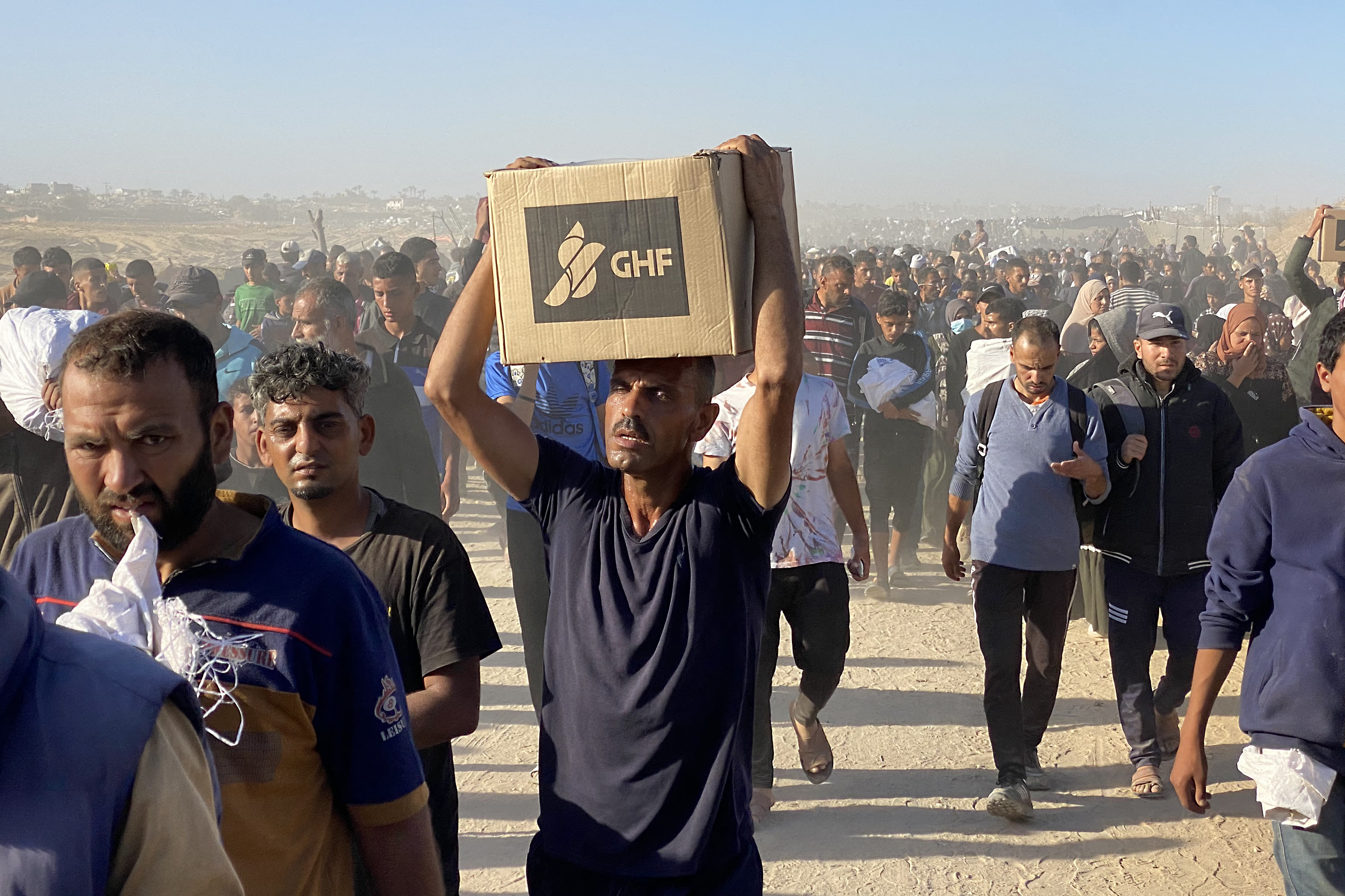
After the incident on May 27, where the UN Human Rights Office (OHCHR) said that it received reports that at least 47 people had been injured while trying to collect aid at a distribution point in Rafah, a city in Gaza’s south, Israeli Prime Minister Benjamin Netanyahu described it as a momentary “loss of control” that was quickly brought “back under control.” He was speaking at the International Holocaust Remembrance Alliance Conference in Jerusalem.
In subsequent emails sent to the media, the GHF denies that there were any deaths, injuries or chaos at the distribution sites on May 27. “Reports to the contrary originated from Hamas and are inaccurate,” it said.
The UN and NGOs have repeatedly accused the GHF of militarising aid and have been highly critical of any IDF involvement.
Aid delivery process?
SWI swissinfo.ch has emailed GHF separately requesting details on the process for picking up aid but has not received a response. But in an email to media outlets June 1, the GHF said a total over 4.7 million meals had been distributed through three fully functioning aid hubs in Rafah and one newly opened site in central Gaza in the six days since it started its operations in the Palestinian enclave.
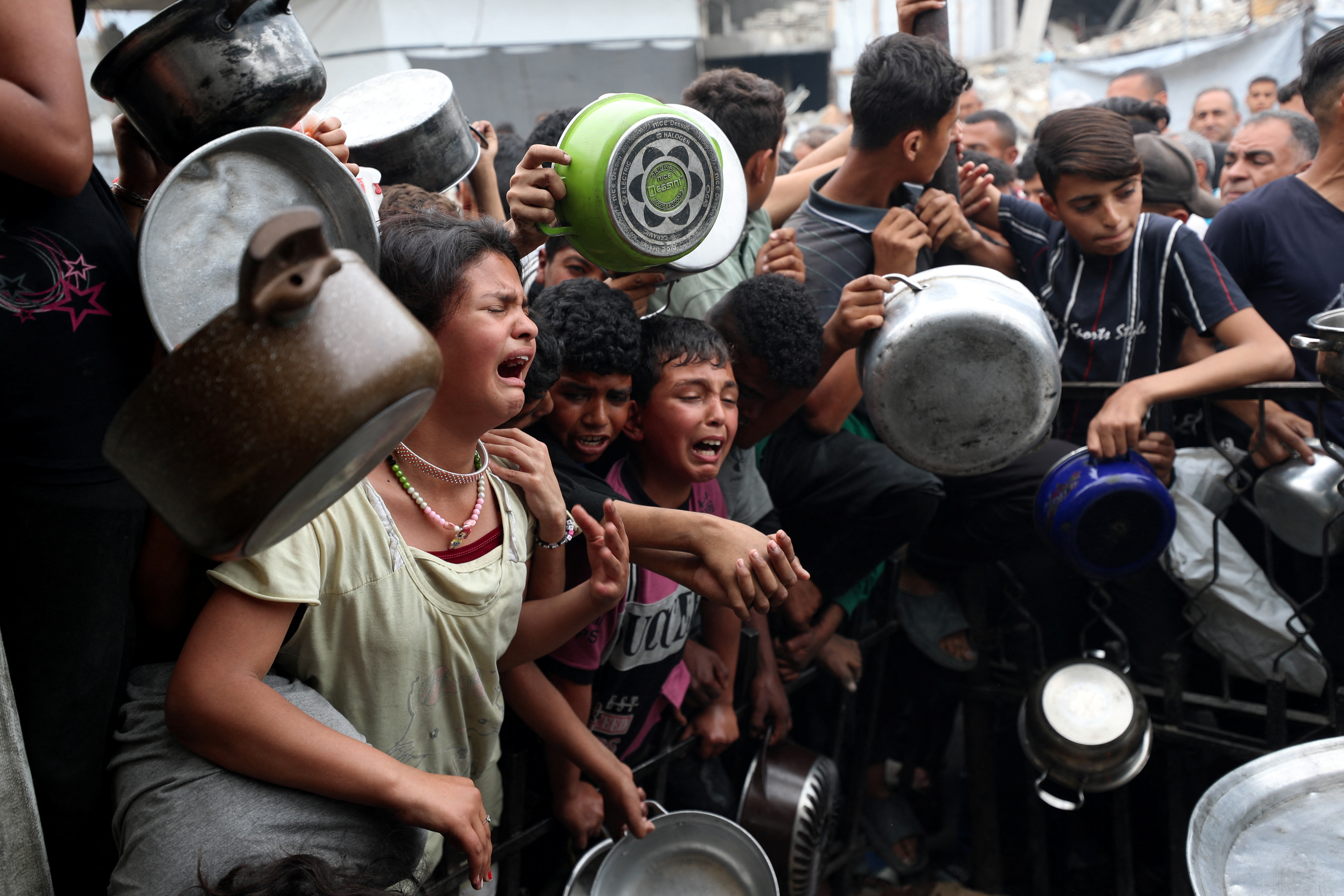
More
A Geneva-based NGO is Israel’s answer to aid in Gaza
Tom Fletcher, the UN’s Emergency Relief Coordinator and one of GHF’s loudest critics, wrote on the social media platform X, “We have the supplies, plan, will, and networks to deliver massive amounts of lifesaving aid to civilians in Gaza, in line with humanitarian principles, as the world is demanding. Enough. Let us work. No more time to lose.”
In a shocking move on May 25 – a day before the GHF became operational – Jake Wood, the foundation’s executive director, announced his resignation.
“Two months ago, I was approached about leading GHF’s efforts because of my experience in humanitarian operations,” Wood said in a statement. “However, it is clear that it is not possible to implement this plan while also strictly adhering to the humanitarian principles of humanity, neutrality, impartiality, and independence, which I will not abandon.”
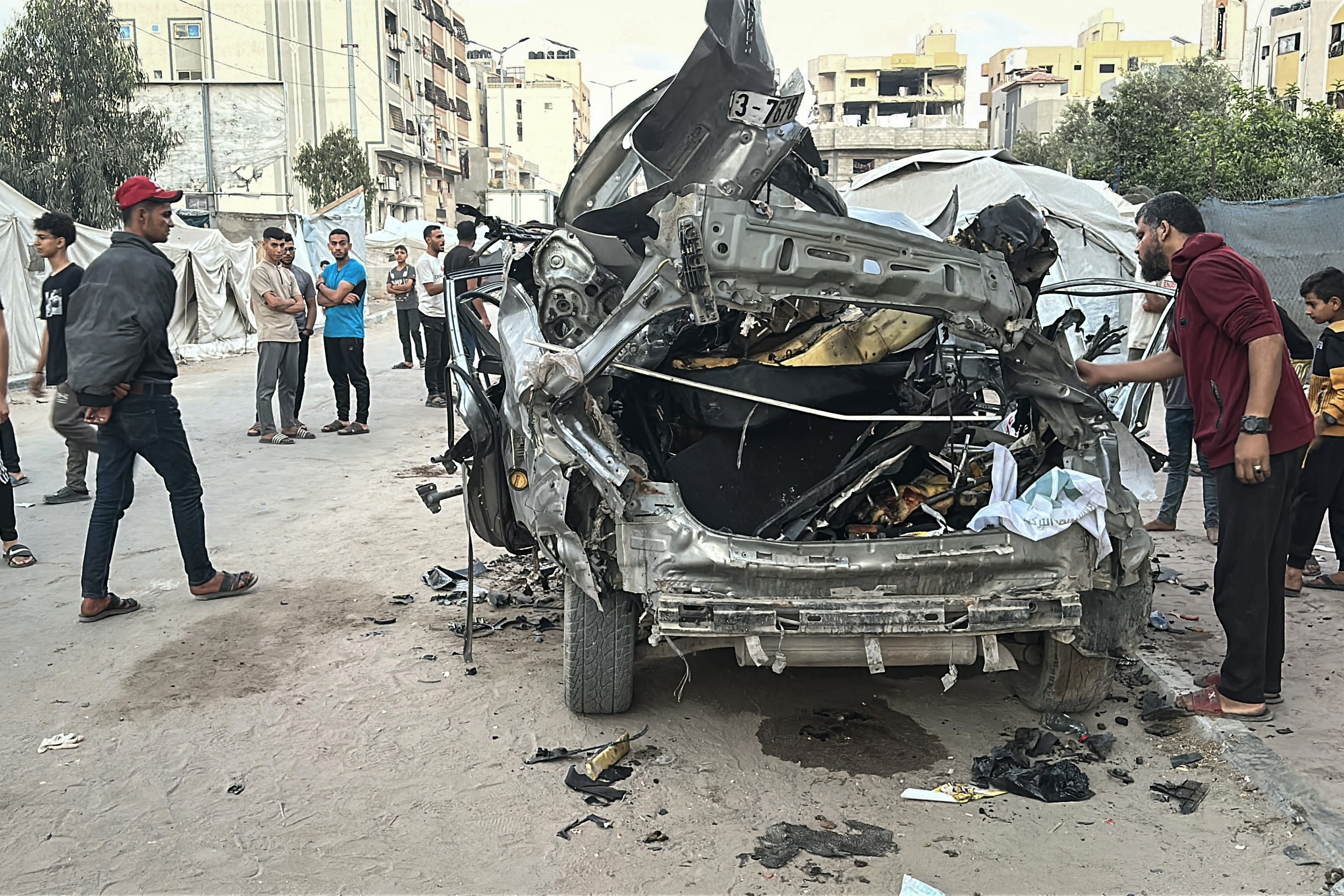
Lack of transparency
While the UN and NGOs such as Mercy Corps, Care International, Project Hope, Save the Children, and Catholic Relief Services have stated that they are not participating in the GHF’s plan, it is unclear who works with the foundation in Gaza or where their initial funding is coming from. The GHF claims to have over $100 million (CHF82 million) in commitments from donors who have not been made public.
In images recently published by the foundation, cardboard boxes of aid – including pasta, flour, beans and tea and biscuits, foods that need to be cooked – were marked with branding from Rahma Worldwide, a nonprofit based in the US state of Michigan. However, the organisation denied any direct involvement with the foundation in an email to SWI. They claim the GHF “took custody” of the boxes at the Kerem Shalom crossing in Gaza.
“We noticed images of our food boxes with logo being distributed without Rahma’s direct involvement. Rahma did not authorise such distribution, and none of our team was permitted to participate in this process,” said a spokesperson.
“Everyone’s confused,” said Philip Grant, the executive director of Trial International, which is an NGO that seeks justice for international crimes. “In this world where the stakes are so high, there should be transparency; it’s not possible to continue” without it, he said.
Based in Geneva, Switzerland, Trial International recently filed two legal submissions with the Swiss Federal Supervisory Authority for Foundations and the Swiss foreign ministry requesting a review of the GHF nonprofit registered in Geneva. Grant told SWI the two entities were basically set up by the same people but appear independent on paper.
The submissions by Trial International involve possible violations of the Geneva Conventions and of the Swiss law that regulates the use of private military companies – including but not limited to humanitarian operations – by the GHF registered in Geneva.
However, in recent days rumours in Geneva have been swirling that the foundation is shutting down. This will further complicate Trial International’s legal submissions, but Grant says it is “not the end of the story”. The oversight requests to the Swiss authorities triggered by Trial International could still proceed.
Aid backlog
Another aspect of aid operations, separate from the GHF, involves the backlog of humanitarian supplies siting at the Kerem Shalom crossing, the point where Israeli trucks, carrying aid, cross into Gaza.
According to the UN, while a meagre number of trucks – about 100 a day for roughly two million people – have been cleared to enter by the Israeli military’s Coordination of Government Activities in the Territories (COGAT), the process of picking up the aid, delivering the goods to warehouses in Gaza and then distributing the aid to civilians has been riddled with obstacles and delays imposed on the UN by COGAT.
In a briefing on May 28 with reporters Jonathan Whittall, the head of office in the occupied Palestinian territories for the UN’s Office for the Coordination of Humanitarian Affairs (OCHA), described “long delays in receiving the needed approvals” to deliver aid in Gaza and “inappropriate routes to transport goods”. He referred to additional restrictions from the Israeli authorities that only permit flour delivery to bakeries. Palestinians are “being starved” and “drip-fed,” he said.
“Gaza is the hungriest place on earth,” said OCHA spokesperson Jens Laerke on May 30. He added that established aid operations are “ready to roll” but have been “put in an operational straitjacket” making Gaza “one of the most obstructed aid operations” in recent history.
In a post on X, the head of COGAT, Ghassan Alian, accused the UN of “not fulfilling its role” and spreading “false and incorrect information regarding civilian distress.” Israel has expanded aid routes and “extended the times of collection,” he added. “We call on the UN to fulfil their mission entrusted to it as a key humanitarian partner as demanded and without any further delays.”
Rumblings of a potential ceasefire agreement between Israel and Hamas have surfaced in recent days. However, there’s been no official announcement on the matter.
Edited by Virginie Mangin/livm/sb
The article was updated June 4 to specify that on June 3 at least 27 Palestinians were killed. A previous version said the shootings had occurred June 2.

In compliance with the JTI standards
More: SWI swissinfo.ch certified by the Journalism Trust Initiative
































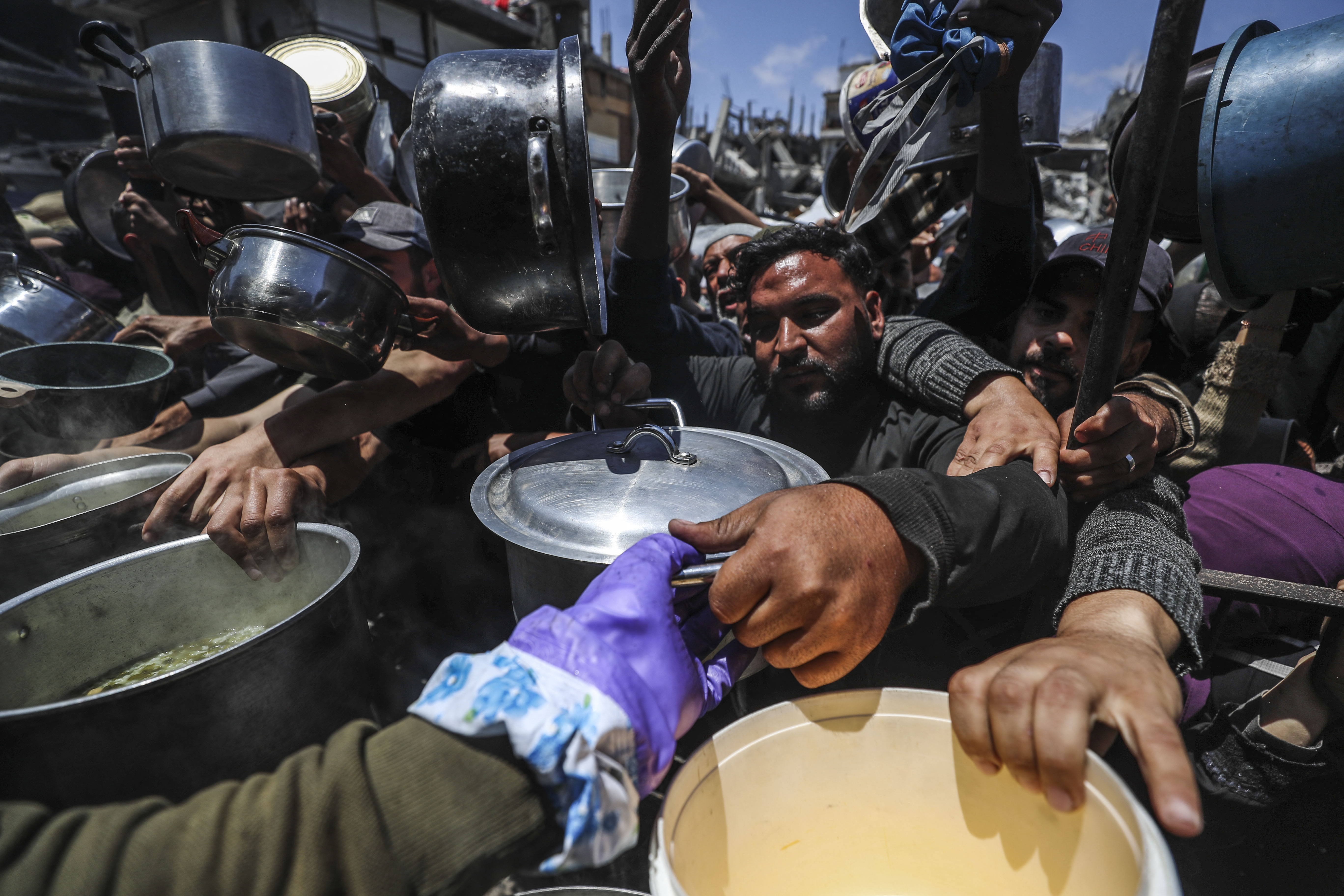

You can find an overview of ongoing debates with our journalists here . Please join us!
If you want to start a conversation about a topic raised in this article or want to report factual errors, email us at english@swissinfo.ch.